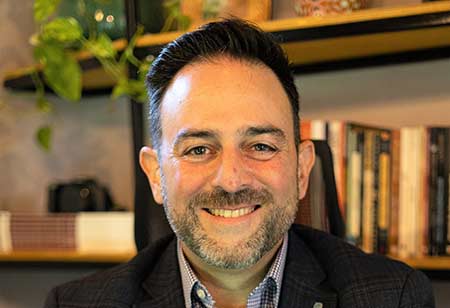

Thank you for Subscribing to Food Business Review Weekly Brief

Carlos M. Saviani, Beef Sustainability Director at Cargill, is a global leader driving innovation at the nexus of food, agriculture, and sustainability. With over 30 years of experience, he champions solutions that balance environmental impact, social responsibility, and business growth across the beef supply chain.
Carlos M. Saviani shared his valuable thoughts for the 2026 edition of Food Business Review on emphasizing the vital role of soil health in enhancing producer resilience, reducing environmental impact, and building a more sustainable and regenerative food system from the ground up. As the global demand for beef continues to rise, so does the urgency to produce it in a way that supports both producers and environmental resilience. At the heart of this challenge lies a powerful yet often overlooked ally: the soil beneath our feet. Healthy soils are not only the foundation of productive agriculture but also a critical tool in the fight against climate change. As an example of this, Cargill’s BeefUp Sustainability program is leading the charge in transforming the beef supply chain by focusing on soil health, maintaining, and enhancing its carbon. Importance of Soil Health Soil is more than just dirt—it is a living ecosystem teeming with microorganisms, organic matter, and nutrients. When managed properly, soil can act as a carbon sink, absorbing and storing atmospheric carbon dioxide (CO₂) through a process known as carbon sequestration. This is particularly important in beef production, where grazing lands cover vast areas and have the potential to store significant amounts of carbon. However, conventional agricultural practices such as overgrazing, tillage, and monoculture can degrade soil structure, reduce organic matter, and release stored carbon back into the atmosphere. This not only contributes to greenhouse gas (GHG) emissions but also diminishes the land’s productivity and resilience to climate extremes. For instance, it reduces the capacity of the soil to retain water. The Role of Regenerative Agriculture Led by Carlos, the Cargill beef sustainability program aims to reduce GHG emissions in the North American beef supply chain by 30% by 2030. Central to this goal is the adoption of regenerative agriculture practices that improve beef productivity, soil health, enhance biodiversity, and increase carbon storage. A win-win for ranchers, nature, and people. We are working closely with farmers, ranchers, NGOs, and technology partners to implement practices such as:Cargill´s sustainability program is leading the charge in transforming the beef supply chain by focusing on soil health, maintaining, and enhancing its carbon.

However, if you would like to share the information in this article, you may use the link below:
https://www.foodbusinessreviewapac.com/cxoinsight/carlos-marcelo-saviani-nwid-1672.html